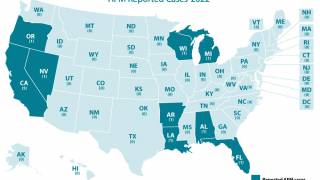El Paso Shares Strategies to Increase HPV Vaccinations

As the world anxiously awaits the development of a vaccine against COVID-19, the City of El Paso Department of Public Health (DPH) is helping to make sure area teens are vaccinated against a virus for which a vaccine does exist.
El Paso, Texas leaders presented the use of community-based strategies on June 18, 2020, to reduce the risk of human papillomavirus (HPV) infections and prevent cervical cancer through vaccination.
Additionally, Hispanics have higher rates of HPV cancers, and meeting the needs of residents in El Paso has been a top priority.
HPV is the highest sexually transmitted infection with about 25 percent of teenagers affected and approximately 80 million cases diagnosed each year.
“In 2018 we began a partnership with organizations and agencies in El Paso to determine who had not been vaccinated and then went further to provide easy access, on-site vaccination to area youth,” said Claudia Lozano, Medicaid Waiver Program Manager, in a press statement.
“This included local middle and high schools, college campuses, recreation centers, and faith-based organizations.”
As a result of the community-based efforts, the City of El Paso has experienced a 55 percent increase in HPV vaccination rates.
Lozano shared best practices such as using a voucher system to track referrals from schools and community organizations; providing mobile, on-site vaccination events; and the importance of tailoring health messaging to teenagers.
More than 1,100 participants have been screened and assessed as a part of the project and so far, nearly half of the patients have returned to complete their HPV vaccination in a 3-dose series.
Using the “Theory of Planned Behavior,” Claudia Lozano, MPH, from the El Paso Department of Public Health, and colleagues created the three approaches to improve the HPV vaccination rate in the city.
The Theory of Planned Behavior (TPB) started as the Theory of Reasoned Action in 1980 to predict an individual's intention to engage in a behavior at a specific time and place.
The theory was intended to explain all behaviors over which people have the ability to exert self-control.
The key component to this model is behavioral intent; behavioral intentions are influenced by the attitude about the likelihood that the behavior will have the expected outcome and the subjective evaluation of the risks and benefits of that outcome.
The TPB is comprised of 6 constructs that collectively represent a person's actual control over the behavior.
The TPB has been used successfully to predict and explain a wide range of health behaviors and intentions including smoking, drinking, health services utilization, breastfeeding, and substance use, among others.
For more information on the El Paso Texas Public Health Department Medicaid Waiver and Immunization program, call 2-1-1 or visit El Paso Public Health.
HPV vaccine development news is available here.
HPV vaccine news published by Vax-Before-Cancer
Our Trust Standards: Medical Advisory Committee
























